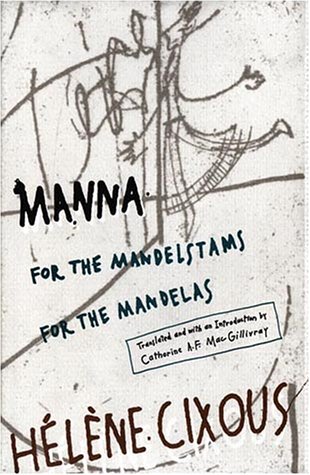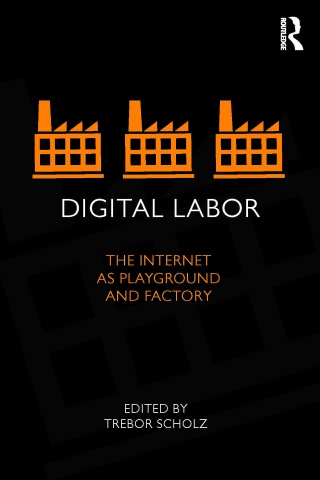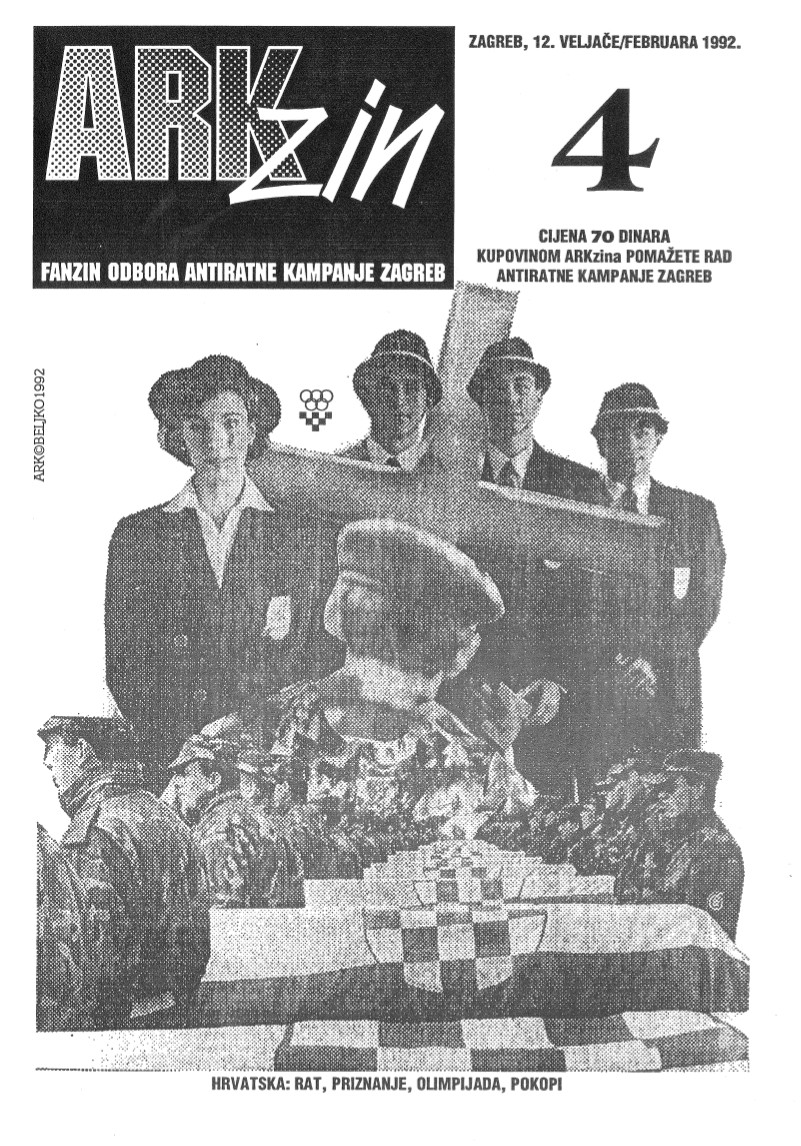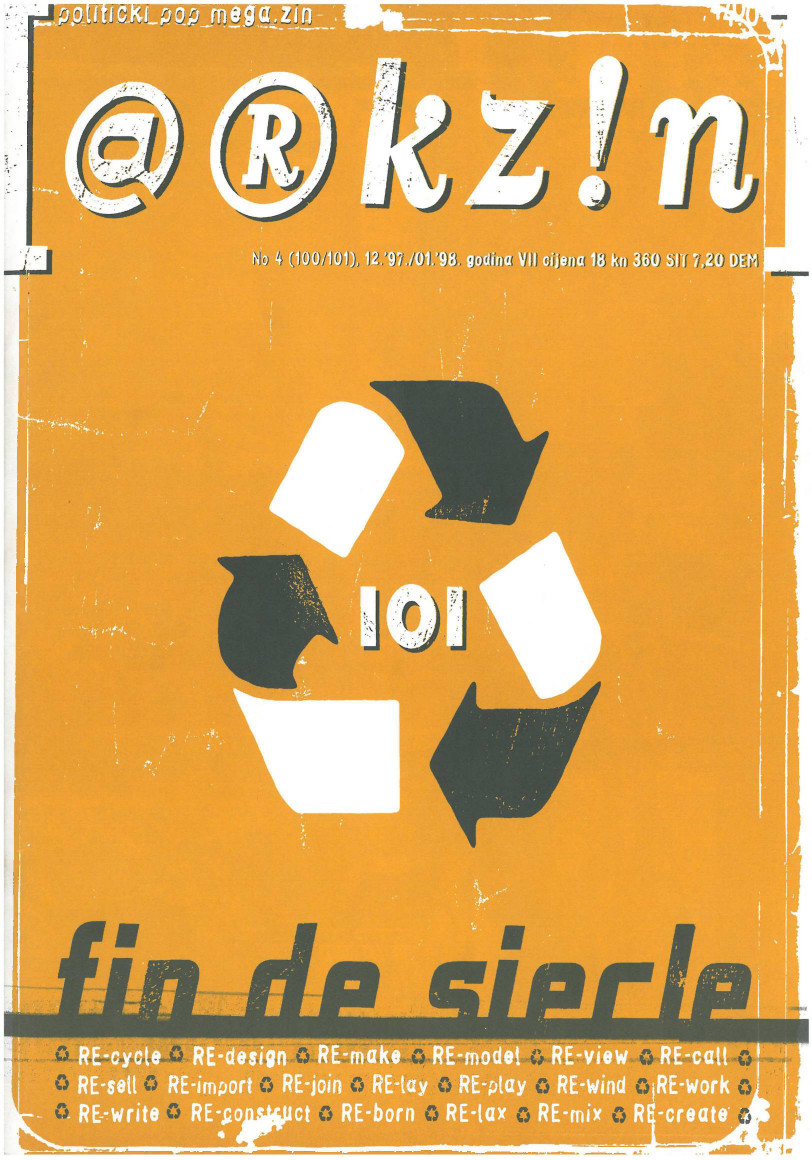Hélène Cixous: Manna: For the Mandelstams for the Mandelas (1988/1994)
Filed under book | Tags: · biography, language, literature, poetry, politics, resistance

“They didn’t know each other, but they knew the same suffering.
A Russian Jewish poet who died in exile in Siberia; a South African political leader who survived his banishment to prison: The two men, Osip Mandelstam and Nelson Mandela, so far apart in time and space, are brought together in this story, their shared destinies unraveled in light of the Jewish and African diasporas.
In Manna, Hélène Cixous, a writer associated with the notion of écriture féminine and a major figure in Continental feminist practice during the 1970s and early 1980s, continues her disruption of the orthodoxies of politics and social order through the liberating use of poetic language. In this act of willful writing, by turns lyrical and intense, she links her two distant subjects through the common first syllables of their names, the dates of their respective exiles, and the women, Nadezhda Mandelstam and Winnie-Zami Mandela, who disclose and restore their partners’ lives through language.
For Cixous, politics is approached most openly and freely through poetry; no social change occurs without linguistic change. In Manna her poetic language mediates the historical, political, and personal narratives of Mandelstam and Mandela (two cores lodged in the heart of the world) to produce a new sense of individual tragedy and cultural possibility. An act of emancipation, exhilarating in the way it subverts the master texts of social and political power, this strange and beautiful book releases its subjects-and its readers-from the limited language of constraint and exile.”
First published as Manne aux Mandelstams aux Mandelas, Les Editions des Femmes. Paris, 1988.
Translated and with an Introduction by Catherine A. F. MacGillivray
Publisher University of Minnesota Press, 1994
ISBN 0816621144, 9780816621149
294 pages
via leninbert
Review: Clare Cavanagh (Slavic Review, 1997).
Comment (0)Trebor Scholz (ed.): Digital Labor: The Internet as Playground and Factory (2012)
Filed under book | Tags: · biopolitics, gift economy, internet, labour, neoliberalism, participation, play, playbour, politics, social media, technology, value, web, youtube

“Digital Labor calls on the reader to examine the shifting sites of labor markets to the Internet through the lens of their political, technological, and historical making. Internet users currently create most of the content that makes up the web: they search, link, tweet, and post updates—leaving their “deep” data exposed. Meanwhile, governments listen in, and big corporations track, analyze, and predict users’ interests and habits.
This unique collection of essays provides a wide-ranging account of the dark side of the Internet. It claims that the divide between leisure time and work has vanished so that every aspect of life drives the digital economy. The book reveals the anatomy of playbor (play/labor), the lure of exploitation and the potential for empowerment. Ultimately, the 14 thought-provoking chapters in this volume ask how users can politicize their troubled complicity, create public alternatives to the centralized social web, and thrive online.”
Contributors: Mark Andrejevic, Ayhan Aytes, Michel Bauwens, Jonathan Beller, Patricia Ticineto Clough, Sean Cubitt, Jodi Dean, Abigail De Kosnik, Julian Dibbell, Christian Fuchs, Lisa Nakamura, Andrew Ross, Ned Rossiter, Trebor Scholz, Tizania Terranova, McKenzie Wark, and Soenke Zehle.
Publisher Routledge, 2012
ISBN 0415896959, 9780415896955
258 pages
Reviews: Sebastian Sevignani (triple C, 2013), Andreas Wittel (Inf, Comm & Soc, 2014), Stephanie Anne Brown (Transformative Works & Cult, 2014), Gregory J. Downey (J Assoc Info Sci & Tech, 2015).
Conference (2009, from Archive.org)
Next conference (14-16 Nov 2014, CfP)
Publisher
Arkzin (1991–1998) [Croatian, English]
Filed under magazine | Tags: · activism, croatia, graphic design, media activism, political theory, politics, tactical media, theory, war, yugoslavia


Arkzin was a periodical published in Zagreb, Croatia, from 1991 to 1998. It began as a political fanzine and later on the editorial board widened the scope and included international members and topics. Arkzin gradually changed to a hybrid magazine in which politics, culture, theory and art met, crossed and overlapped.
In total, 106 issues appeared, including eight in English (between April 1993 and January 1994). Five issues of the periodical for critical writing Bastard were published as a supplement to the magazine.
The editors-in-chief of Arkzin were Vesna Janković (I/1-3, II/1-90), Miroslav Ambruš Kiš, Zoran Oštrić (I/1-3), Vladimir Desnica (I/5-6), and Dejan Kršić (II/91-93, III).
PDFs (Monoskop wiki, via MaMa & Human Rights Archive)
See also Prospects of Arkzin catalogue (48 pp, 2013)

